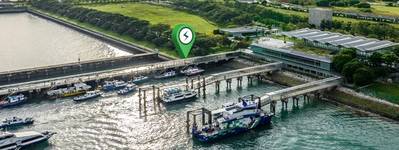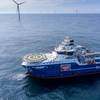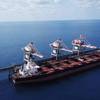Singapore Picks 11 Proposals to Advance Electric Harbor Craft Designs
The Maritime and Port Authority of Singapore (MPA) has shortlisted 11 proposals, submitted by seven companies and consortia, to advance designs and promote adoption of full electric harbor craft (e-HC) in Singapore.
The announcement follows call for the expressions of interest (EOI), launched by MPA) in 2023, which yielded 55 proposals from 32 international and local companies and consortia.
The results signal high interest and strong confidence by global and local participants in the development of e-HC in Singapore.
Of the 11 e-HC designs, six have secured the relevant technical approvals from Classification Societies such as American Bureau of Shipping (ABS), Bureau Veritas, China Classification Society, DNV and RINA, and will be seeking to aggregate industry demand for their designs.
The six designs submitted by the Coastal Sustainability Alliance, marinEV – a consortium comprised of Lita Ocean and SeaTech Solution, and Pyxis Maritime, demonstrate strong understanding of Singapore’s requirements in areas including battery specifications, digital and cyber systems, training requirements and development of local capability, according to MPA.
These participants will be working directly with MPA and its researchers over the next two to six months to optimise and validate their e-HC designs, depending on their current maturity and readiness.
The remaining five proposals were submitted by CAEV+ Consortium – made up of Contemporary Amperex Electric Vessel Technology (CAEV), Contemporary Amperex Technology (CATL), Guangdong SINOWAY Composite Materials, YUET HING Marine Supplies, and Seastel Marine System Shanghai; China Everbright Environment Group Limited; Cyan Renewables Consortium – comprising Bureau Veritas Marine, PSA Marine, Strategic Marine, and technology providers SeaCabbie, Sea Forrest and Victory Petroleum; and Gennal Engineering.
MPA will work with these participants, together with the various universities and research institutes to further develop their e-HC designs.
The scope of enhancements will include optimization of the vessel hull and electrical systems design, the design of fire-resilient battery room, and cyber health monitoring system, to strengthen the vessels’ energy efficiency and safety. Similarly, these designs can be progressively implemented for demand aggregation from the industry.
Participants had submitted technically strong e-HC designs, including the use of optimized aluminum hull form, high energy density batteries with active liquid cooling, battery thermal detection and protection system, among others.
They had also stated in their proposals that the total cost of ownership for e-HC can be comparable to a conventional harbor craft.
To remind, MPA recently selected several companies to pilot their e-HC charging concepts in Singapore.
While e-HC currently have higher upfront capital cost due primarily to the higher cost of the batteries and associated systems, these can be mitigated by energy cost savings from operating the more energy-efficient e-HC, reduced maintenance cost and operational downtime.













